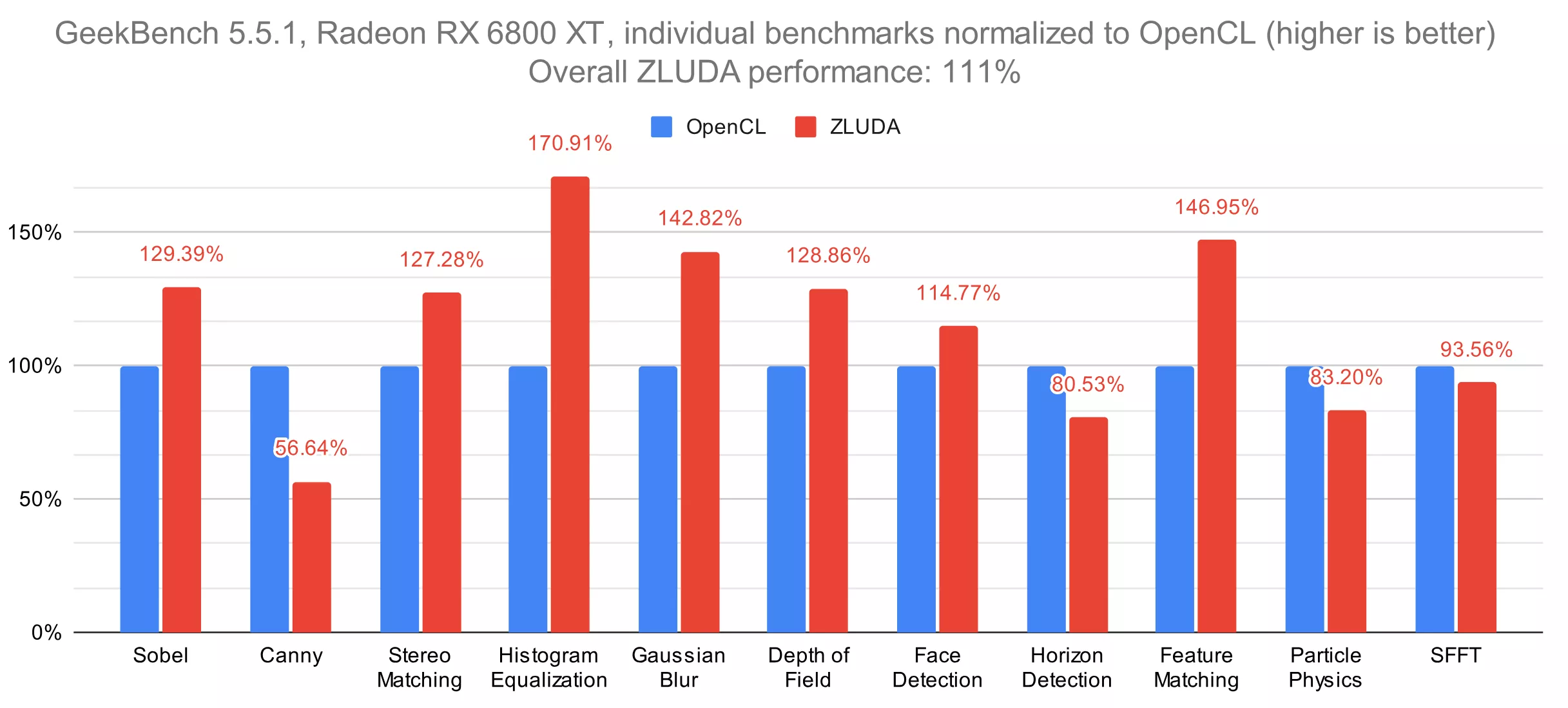Why it issues: Nvidia launched CUDA in 2006 as a proprietary API and software program layer that finally turned the important thing to unlocking the immense parallel computing energy of GPUs. CUDA performs a serious position in fields equivalent to synthetic intelligence, scientific computing, and high-performance simulations. However operating CUDA code has remained largely locked to Nvidia {hardware}. Now, an open-source venture is working to interrupt that barrier.
By enabling CUDA functions to run on third-party GPUs from AMD, Intel, and others, this effort may dramatically develop {hardware} selection, cut back vendor lock-in, and make highly effective GPU computing extra accessible than ever.
The Zluda group just lately shared its newest quarterly replace, confirming that the venture stays centered on absolutely implementing CUDA compatibility on non-Nvidia graphics accelerators. Zluda’s acknowledged objective is to supply a drop-in alternative for CUDA on AMD, Intel, and different GPU architectures – permitting customers and builders to run unmodified CUDA-based functions with “near-native” efficiency.
A most promising change for Zluda is that its group has doubled in dimension. There at the moment are two full-time builders engaged on the venture. The newly added developer, often known as “Violet,” has already made notable contributions to the device’s official open-source repository on GitHub.
Different vital updates contain enhancements to the ROCm/HIP GPU runtime, which ought to now operate reliably on each Linux and Home windows. GPU runtimes like CUDA and ROCm are designed to compile GPU code at runtime, making certain that code developed for older {hardware} can sometimes compile and run on newer GPU architectures with minimal points.

Zluda can also be now considerably higher at executing unmodified CUDA binaries on non-Nvidia GPUs. Beforehand, the device both ignored sure instruction modifiers or didn’t execute them with full precision. Now, the improved code can deal with a number of the trickiest circumstances – such because the cvt instruction – with bit-accurate precision.
A key step in absolutely supporting CUDA functions is monitoring how code interacts with the API via detailed logging. Zluda has improved on this space as effectively. It will probably now seize beforehand neglected interactions and even deal with intermediate API calls.
Additionally see: Not simply the {hardware}: How deep is Nvidia’s software program moat?
The builders additionally made significant progress in supporting llm.c, a pure CUDA take a look at implementation (written in C) for language fashions like GPT-2 and GPT-3. Zluda at present implements 16 out of 44 features in llm.c, and the group hopes to completely run the take a look at quickly.
Lastly, Zluda has superior barely in its potential assist for 32-bit PhysX code. Nvidia dropped each {hardware} and software program assist for this middleware with the Blackwell-based GeForce 50 collection GPUs, leaving followers of previous(ish) video games with what might be primarily described as a damaged or subpar expertise.
Prior to now quarter, Zluda acquired a minor replace associated to 32-bit PhysX assist. The preliminary focus is on effectively amassing CUDA logs to establish potential bugs, which may finally have an effect on 64-bit PhysX code as effectively. Nonetheless, the builders warning that full 32-bit PhysX assist will doubtless require important contributions from third-party coders.

